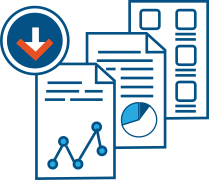Marketing Differentiators are the specific value propositions, capabilities, and traits that set a contractor apart in the federal marketplace. In the context of GSA Schedule marketing, these differentiators are essential for attracting government buyers, standing out in competitive solicitations, and communicating why an agency should choose your company over another.
For GSA contractors, marketing differentiators must be practical, verifiable, and aligned with how federal agencies make decisions. Unlike broad commercial slogans, effective differentiators in the government space are grounded in performance, compliance, and mission relevance.
Why Marketing Differentiators Matter
Government buyers often review multiple vendors with similar pricing and contract access. Marketing differentiators help decision-makers quickly identify what makes one contractor more suitable than another. Differentiators influence:
- Agency confidence in your ability to perform
- Award decisions during best-value evaluations
- Subcontracting or teaming selections by primes
- Proposal scoring under technical and past performance factors
- Contracting officer perceptions of risk, value, and responsiveness
Contractors who clearly define and communicate their differentiators are better positioned to win business and build long-term relationships with federal clients.
Common Marketing Differentiators for Government Contractors
Here are examples of marketing differentiators that resonate with federal buyers:
1. Relevant Government Experience
- Prior performance with specific agencies or mission types
- Success under similar contract vehicles or task orders
- Experience with classified, remote, or emergency operations
2. Specialized Offerings or Certifications
- Niche technologies, proprietary tools, or patented methods
- Highly cleared personnel or domain-specific SMEs
- ISO, CMMI, or FedRAMP certifications
3. Small Business or Socio-Economic Status
- 8(a), HUBZone, SDVOSB, WOSB, or DBE designations
- Proven ability to help agencies meet small business goals
- Experience working as a prime or subcontractor on set-aside projects
4. Agility and Responsiveness
- Rapid response time to task orders or RFQs
- Flexible delivery models and nationwide reach
- Adaptive staffing or surge support capabilities
5. Strong Contract Management and Compliance
- Flawless audit history and CPARS ratings
- Accurate GSA Advantage! catalog and timely eMod usage
- Effective use of tools like eBuy, SRP, and FCP
6. Competitive, Transparent Pricing
- Pre-negotiated GSA rates aligned with current market
- Willingness to offer discounts at the task order level
- Strong value-for-money narrative in proposals
7. Mission Understanding
- Clear alignment with the agency’s goals and challenges
- Past work that supports similar programs or mandates
- Experience addressing sector-specific requirements (e.g., DoD, VA, DHS)
How to Identify Your Own Differentiators
Contractors should conduct an internal audit of their federal readiness, past performance, and capabilities to extract what truly sets them apart. Ask:
- What problems do we solve better than others?
- What have agencies praised us for in CPARS or debriefs?
- What technical or operational capacity do we offer that’s hard to replicate?
- What is unique about our team, culture, or delivery model?
The goal is to identify clear, defensible strengths—not generic claims like “customer-focused” or “innovative.”
How to Use Marketing Differentiators
Once defined, your differentiators should be consistently integrated into:
- GSA Advantage! listings and descriptions
- Capabilities Statements and pitch decks
- Website government landing pages
- Proposal cover letters and technical narratives
- Verbal messaging during briefings and industry events
- SAM.gov profiles, eLibrary entries, and digital marketing content
Each message should connect your differentiators to agency priorities such as efficiency, compliance, speed, mission support, or risk reduction.
Best Practices
- Focus on proof, not slogans: Quantify differentiators with stats, clear outcomes, or credentials
- Tailor messaging to each opportunity: Emphasize relevant strengths per agency or RFQ
- Keep it concise: Differentiators should be sharp and easy to recall
- Avoid overused terms: Terms like “trusted partner” or “cost-effective” are only useful when backed by context
- Keep differentiators updated: As your business evolves, refresh them to reflect new wins, capabilities, or certifications
Conclusion
Marketing Differentiators are a vital tool for standing out in the crowded GSA and federal contracting environment. They allow contractors to communicate their strengths clearly and credibly while helping buyers make informed, confident decisions. By identifying, articulating, and embedding strong differentiators across your government-facing materials, you strengthen your brand, improve proposal quality, and increase your chances of winning federal work.


